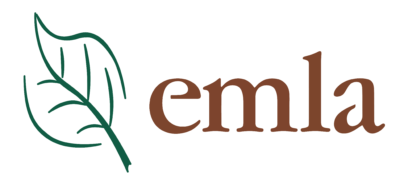Background
While the body of EU environmental policy and regulation is one of the most advanced and comprehensive in the world, an implementation gap has become evident. Strong legislative and policy frameworks are not providing the results that they should because they are not properly implemented. Experience across EU Member States has shown that relying solely on public authorities to overcome the implementation deficit will not yield the required results. Therefore, active citizens, either acting on their own or via NGOs, are essential to support the actions of authorities. There are many ways in which such ‘citizen enforcement’ could take place. However, in order to be truly effective, it needs to involve access to judicial review.
Objectives
The LIFE-A2J-EARL project aims to improve the implementation and enforcement of EU environmental law by providing the public with effective access to justice, such as judicial review, administrative review and complaints to other appeal bodies. Access to justice is a fundamental means through which citizens and NGOs can support the implementation and enforcement of laws and policies to protect the environment. In order to reach this long-term goal, the project aims to:
- Increase awareness of existing rules and case-law on access to justice in environmental matters for specific target audiences – the judiciary, bodies responsible for the administration of justice, public interest lawyers and public administrations;
- Increase understanding of the importance of ensuring proper access to justice for the implementation of EU environmental laws and policies;
- Increase understanding of specific challenges and obstacles to proper access to justice in environmental matters both at national and EU level; and
- Increase knowledge and capacity for overcoming legal (both substantial and procedural) challenges and obstacles to effective access to justice in the environmental field.
Expected results
At least 6 400 people having access to at least one of the following materials created during the project: a handbook on access to justice, EU procedural rules and case law and the Aarhus Convention equivalents, national toolkits on access to justice in 8 Member States and the digital information platform, a public interest lawyer database regrouping lawyers active in the field of environmental law and have been dealing with access to justice cases;
At least 120 people receiving an answer to their specific question via the ‘ask a lawyer’ function that will be published online;
At least 1000 people trained on access to justice issues in 48 workshops and seminars held in different locations in eight Member States or via 12 webinars;
At least 120 people sharing their experience and knowledge at a conference held in Brussels;
At least 85% of the target audience accessing project materials or attending events that inform them of the rules and case law on access to justice on environmental matters; and
At least 80% of the target audience accessing project materials or attending events will have a better understanding of the specific challenges and obstacles to proper access to justice on environmental matters.
Beneficiaries
Coordinator: Association Justice & Environment, z.s.
Partner: ClientEarth, United Kingdom
Affiliates: Environmental Management and Law Association, Hungary
Estonian Environmental Law Center, Estonia
Instituto Internacional de Derecho y Medio Ambiente, Spain
Unabhängiges Institut für Unweltfragen, Germany
The project is funded by the LIFE Programme of the European Union.
Publications
The main publication of the EARL project is ready. The English language document called “Guide on Access to Justice in European Union law”, written by ClientEarth, is available at the following link: https://www.documents.clientearth.org/library/download-info/16209/
Events
Aarhus+20 and the first Hungarian training in the EARL project

